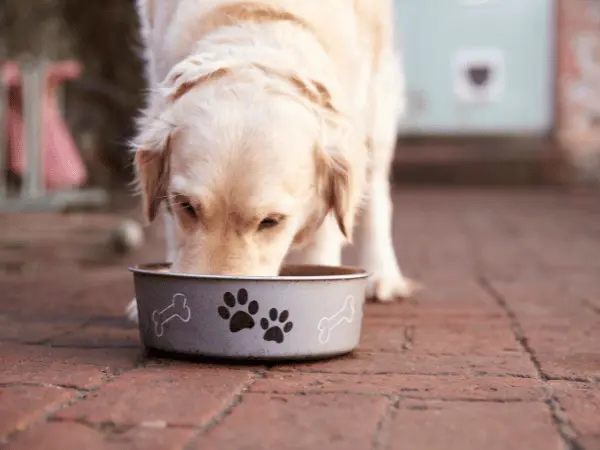Does your dog show symptoms of a sensitive stomach such as vomiting, diarrhea, or a lack of appetite? These digestive issues can be distressing for both you and your furry friend. Managing a dog with a sensitive stomach requires careful attention to their diet and overall health — but the first step is to know for certain if these interventions are necessary.
Our medical team at Sploot Vets prepared this comprehensive guide to talk about how to determine if your dog has a sensitive stomach and the best dog food for sensitive stomachs.
What’s in This Guide?
- How to Tell if a Dog Has a Sensitive Stomach
- Dietary Change: Is it Necessary for Dogs with Sensitive Stomachs?
- Choosing the Best Dog Food for Sensitive Stomachs
- Probiotics & Prebiotics for Managing Sensitive Stomach in Dogs
- Transitioning to Dog Food for Sensitive Stomachs
I. How to Tell if a Dog Has a Sensitive Stomach
Dogs with sensitive stomachs display a variety of clinical signs or symptoms. These can include the following in varying severity and frequency:
- Vomiting;
- Diarrhea or loose stools;
- Flatulence;
- Abdominal pain or discomfort;
- Lack of appetite;
- Weight loss; and
- Lethargy.
Determining if your dog truly has a sensitive stomach involves a comprehensive assessment of their health and diet history by a veterinarian. They will need detailed information about all treats, chews, and supplements you give your dog.
Note: A veterinary consultation is crucial because symptoms of a sensitive stomach in dogs can sometimes indicate other medical conditions, such as endocrine diseases, autoimmune conditions, or exocrine pancreatic insufficiency, where the dog lacks essential digestive enzymes.

II. Dietary Change: Is it Necessary for Dogs with Sensitive Stomachs?
A certified veterinarian can determine if dietary change is appropriate for your dog. Veterinarians may recommend prescription dog food, potentially through a 4-12 week food trial — or advise you on which ingredients to avoid moving forward.
Beyond dietary adjustments, your dog may also require additional products to support their digestive health, such as a veterinary probiotic backed by research, like Purina’s FortiFlora.
III. How to Choose the Best Dog Food for Sensitive Stomachs
Choosing the best dog food for sensitive stomachs involves certain factors, such as the protein source of the dog food, beneficial ingredients, ingredients to avoid, and the brand of the dog food.
A. The Best Protein Source for Dogs with Sensitive Stomachs
The protein source in dog food is crucial for dogs with sensitive stomachs. Preferred types of protein include:
- Novel proteins such as duck, venison, or fish, which are less likely to cause allergies.
- Single-source proteins to minimize the risk of an adverse reaction.
The key is to choose high-quality, easily digestible proteins that your dog has not been exposed to frequently.
B. Ingredients to Look for in Dog Food for Sensitive Stomachs
When choosing dog food for sensitive stomachs, look for the following ingredients:
- Easily digestible proteins such as chicken, turkey, or lamb.
- Limited ingredient diets (LIDs) to reduce the risk of triggering food sensitivities.
- Prebiotics and probiotics to support healthy digestion.
- Rice or oatmeal as easily digestible carbohydrate sources.
- Omega-3 and omega-6 fatty acids to help reduce inflammation.
C. Ingredients to Avoid for Dogs with Sensitive Stomachs
Certain ingredients can exacerbate a sensitive stomach and should generally be avoided:
- Artificial additives and preservatives like BHA, BHT, and ethoxyquin.
- Fillers such as corn, soy, and wheat, which can be harder to digest.
- By-products and meat meals that may contain lower-quality proteins.
- Dairy products which can be difficult for some dogs to digest.
- High fat content which can lead to digestive upset.
D. Brands of Dog Food for Sensitive Stomachs
While we don’t endorse specific brands, here are some formulations that are often recommended due to scientific research that supports that they are complete and balanced diets:
- Hill’s Science Diet Sensitive Stomach & Skin
- Purina Pro Plan Sensitive Skin & Stomach
- Royal Canin Gastrointestinal Low-Fat
- Wellness Simple Limited Ingredient Diet
These brands offer high-quality, easily digestible ingredients tailored for dogs with sensitive stomachs.
Note: Looking for vet-preferred dog food and dog treats? Discover more at SplootRX, your online pet store and pharmacy for vet-preferred pet care supplies!

IV. The Role of Probiotics & Prebiotics for Managing Your Dog’s Sensitive Stomach
Probiotics and prebiotics play a significant role in managing a dog’s sensitive stomach. They help maintain a healthy balance of gut bacteria, which can improve digestion and reduce gastrointestinal issues.
Probiotics for dogs introduce beneficial bacteria, while prebiotics for dogs feed those beneficial bacteria. Including these in your dog’s diet is highly recommended; some brands have these readily included.
V. Transitioning to Dog Food for Sensitive Stomachs
Sudden changes to a dog’s diet can lead to digestive upset. To transition your dog to a new food without causing digestive upset, follow these steps:
- Gradual Introduction: Mix the new food with the old food, gradually increasing the amount of new food over 7-10 days.
- Monitor for Reactions: Watch for any signs of digestive upset during the transition period.
- Patience: If your dog shows any adverse reactions, slow down the transition process.

Final Thoughts on Dog Food for Sensitive Stomachs
By carefully selecting the right diet and taking supportive measures, you can help manage your dog’s sensitive stomach and improve their overall well-being.
Beyond choosing the right food, consider these additional steps to support your dog’s digestive health:
- Regular feeding schedule – This helps regulate digestion.
- Adequate hydration – This ensures your dog always has access to fresh water.
- Avoid table scraps and high-fat treats – These can disrupt digestion.
- Regular exercise – This promotes healthy digestion.
- Routine veterinary check-ups (wellness exams)– This facilitates the early detection of any potential digestive issues.
Sploot Vets: Your Go-To Vet for Preventative & Urgent Care
Sploot Veterinary Care is your go-to vet for primary (preventative) care, urgent vet care, and emergency vet care services.
If you have further questions about stomach sensitivity in dogs, the best dog food for sensitive stomachs, and other pet health concerns, please feel free to contact us or visit one of our Denver and Chicago vet clinics.
You can conveniently book an appointment online or through the Sploot Vets app. Our vet clinics are open 365 days a year, operating on extended hours daily. Experience next-level veterinary care today!
Till next time, we’re with you every pounce of the way.
